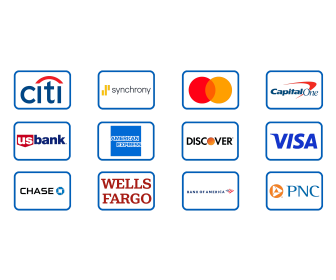Student Loans and Credit Cards
Student loans and credit cards are often the first two forms of credit young adults encounter — and how you manage them can shape your financial future for years. Understanding how they interact, affect your credit score, and influence your debt habits is key to building stability instead of stress. Here’s how they connect and how to balance them wisely.
1. How Student Loans Affect Your Credit
Student loans are installment debt — meaning you borrow a fixed amount and pay it back over time with interest. These loans can help your credit score by adding a positive payment history and improving your credit mix, as long as you make consistent payments.
- On-time payments matter most: Every missed or late payment can hurt your score significantly.
- Long-term benefit: A well-managed loan adds years of positive history to your credit report.
- Deferred status: While in school, payments may be paused, but the account still appears on your credit file.
2. How Credit Cards Affect Your Credit
Credit cards are revolving credit, which means you can borrow repeatedly up to a limit and repay at your own pace. They build credit faster than loans — but also carry a higher risk of debt if misused.
- Credit utilization: Keep balances below 30% of your limit to show responsible use.
- Payment history: Even one missed payment can damage your score for months.
- Account age: Keeping an old card open helps your score grow over time.
3. How They Work Together
Student loans and credit cards complement each other in your credit profile. Together, they build a strong mix of credit types — one installment (loans) and one revolving (cards) — which is a factor that makes up about 10% of your credit score.
- Balanced use: Having both types shows lenders you can handle different credit responsibilities.
- Good habits transfer: Paying your credit card on time can help you manage loan payments later.
- Score growth: A positive record on both can help you qualify for lower rates after graduation.
4. Common Mistakes to Avoid
Juggling both loans and cards during school can lead to trouble if you don’t manage them proactively. The key is to stay organized and avoid short-term fixes that create long-term costs.
- Paying only minimums: You’ll spend far more in interest over time.
- Using credit for nonessentials: Don’t treat your card like bonus income.
- Ignoring statements: Missing small payments can trigger big hits to your score.
- Defaulting on loans: Can lead to wage garnishment or loss of federal benefits.
5. Smart Strategies to Manage Both
Balancing student loans and credit cards doesn’t have to be overwhelming. With a clear plan, you can maintain strong credit while minimizing interest and stress.
- Automate payments: Schedule loan and card payments to avoid missed due dates.
- Use credit cards strategically: Small, regular purchases you can pay off in full each month.
- Budget early: Plan for minimum loan payments even before graduation.
- Track interest rates: Refinance or consolidate loans when it saves money.
6. The Impact on Your Credit Score After Graduation
When student loans enter repayment, your payment history becomes a major influence on your credit score. Consistent, on-time payments can lift your score dramatically within the first year of repayment.
- Early autopay: Many lenders offer small rate discounts for setting it up.
- Combine wisely: Keeping a credit card open and active continues to build your credit mix.
- Plan for the long term: Student loans are marathon credit accounts — handle them steadily.
Expert insight: Managing student loans and credit cards isn’t about perfection — it’s about consistency. Paying on time, even small amounts, matters more than paying a lot occasionally. Momentum builds credit far faster than intensity.
Final Thoughts
Student loans and credit cards can either work together to build your financial foundation or drag you into debt, depending on how you manage them. Keep payments on time, avoid carrying credit card balances, and stay aware of interest rates. With the right habits now, your post-graduation credit profile will open doors — not close them.
Not financial advice. Student loan and credit card policies vary by lender and issuer. Always confirm your repayment terms, grace periods, and reporting details before making decisions.



